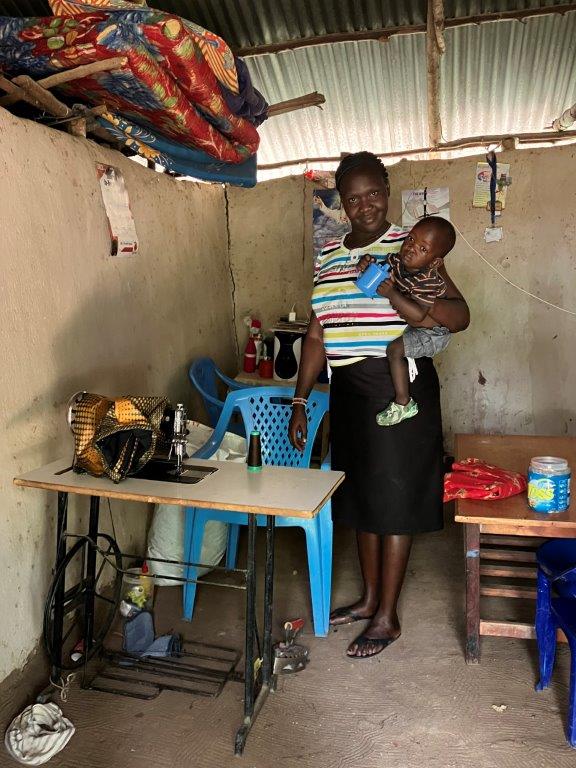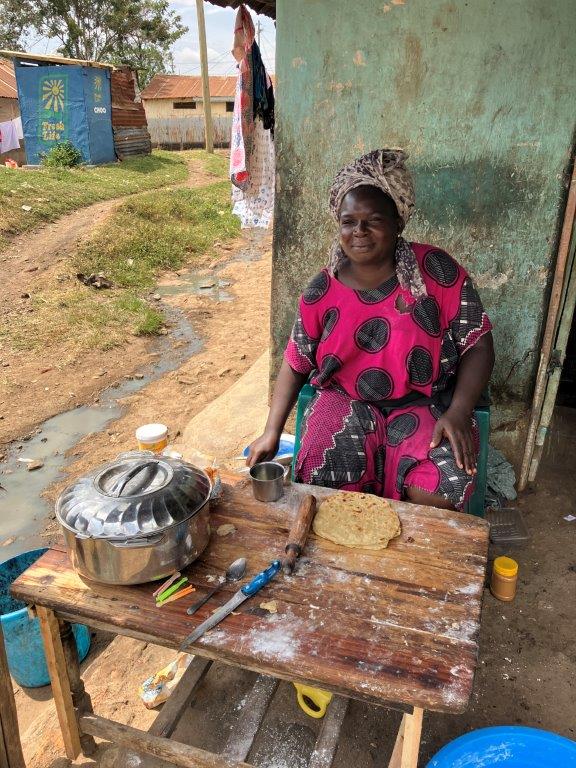Koert Lindijer has been a correspondent in Africa for the Dutch newspaper NRC since 1983. He is the author of four books on African affairs.
Florence Onyang Oror is poor and disowned. That is because she is a widow and she denied inheritance by her brother-in-law after the death of her husband in 1993. She lives on a small piece of land in Kombewa, a village near Lake Victoria in western Kenya. “A judge allowed me to live here, but the community, the men, are always against me. I am an outcast. You have to be brave as a woman to survive”.
Statistics from the World Bank last year showed that more and more households in Kenya are headed by only one parent, the mother. This trend is eroding the foundations of traditional society, on a continent where the extended family and ubuntu (the philosophy of “I am, because we are”) held people together, in lean and prosperous years. According to the World Bank, 30 percent of households in Kenya are headed by a woman. Poverty, disappearing sense of community and emancipation are among the main causes. It occurs throughout Kenya and especially in the west of the country among the Luo people.
The stiff body of Florence, born in 1964, stretches with difficulty to cut down a bunch of bananas. “Men think they are the king of their compound,” she says. “When my husband died, his relatives wanted to drive me out of this compound. Because I had refused to sleep with his brother, which in tradition comes with your brother-in-law inheriting you. You must then have sex without a condom the first time, otherwise you are not cleansed. Now I am old and barren and therefore worth nothing. The traditions of the Luo are so terribly bad for women.” A few of her fingers are numb, her shoulder hurts: at her advanced age it is difficult for her to get some income from her field. “I don’t have the strength anymore and I’m on my own.”
Fish for sex.
An hour’s drive away between hills and rocks, in the village of Lunga, 33-year-old Helma Akiny Owuor is also on her own. She got pregnant at seventeen after having sex, hoping he would pay for her school fees, but he refused. Then her sister found a husband for her, again hoping he would pay for her school fees. “He was a fisherman. Fishermen always have a lot of money, so every woman wants a fisherman. But he hit me and I ran away.”

Back in the parental compound, the task fell to her to take care of three elderly people: het father, her mother and her adopted mother. “I washed their body. If you have washed your father, you will never have children again, according to the Luo tradition. I was cursed”. She smiles and brings her son to her breast. “But they didn’t succeed, I did get pregnant, but I don’t want a man anymore.” She grows corn and vegetables on a piece of land as well as makes clothes. “I struggle every day for my family. I advise all girls to finish school first and earn money. Only with your own income can you think about marriage without becoming a victim.”
Helma gestures angrily with her phone, as if she were going to throw it away. “The boys watch pornography on this nowadays. Afterwards they feel so macho and taunt you that they can have sex anywhere for just twenty shillings. When the Luo culture was strong, boys lived with men and daughters with their mothers. Where they heard stories, and received life lessons. Nowadays, that parental guidance has disappeared and the children are guided by the Internet. There are so many pregnant girls in schools these days.”
Come and stay
A Luo man is a kind of demigod, he wants to be worshiped by children and women. But that status brings obligations. Boys were disciplined by all the elders of the community, night runners were employed to spy on possible marriage candidates for their suitability. The inheritance of women was for the social security of the widow and her children. “Nowadays it’s all about sex, inheriting happens in bed,” sneers Mary Ger of a private aid organization against domestic violence, part of CSO network in Kisumu. “Poverty makes men feel worthless, their self-esteem eroded. They no longer take responsibility and instead abuse women and children”.
Tabitha Akinyi

As an alternative to the old marriage with obligations, the new “come and stay” is emerging, living together without obligations for the man. Tabitha Akinyi throws another chapati (an Indian flatbread) on the hot plate. She lives in the Nyalenda slum of Kisumu and makes 150 chapatis every day and earns three euros a day, plus another four euros from washing clothes. When her husband died ten years ago, she was left with five children. “I invited a boyfriend to come and stay, with no mutual obligations, but he wanted me to take care of him. That’s how it is these days, men don’t take care of their families anymore. That’s why I stay single and manage to pay the school fees for all my children. My son says ‘it’s better this way, mom, because fathers cheat on you’. I don’t want any more men in my life.”
In Nyalenda, geese splash in the alleys in the overflowing water where children are being washed. Boys surrounded by the smell of marijuana hang around their “base”, watched by girls who stroll by. Phanis Odongo doesn’t dare let her daughters loose on this. “I promised to send them to a boarding school, away from the slums, but I have no money.” The man she lives with is the head of her family, but she provides almost all of the income. “You never show that outside of your family, that reflects badly on the man. He deserves respect. We used to bow to our men, but with all the poverty those habits can’t stay the same.”
Meat on meat
Ismael was raped when she was 17 and is now a commercial sex worker in the poor neighborhood of Kaloleni in the regional capital Kisumu. She has five children, each by a different man. “Because of the increasing poverty, I am undergoing more and more competition from women who want to earn money with sex. Corona made everything worse. I am now HIV positive and no longer do it nyama kwa nyama, meat on meat, so without a condom, although it pays more. No sex, no food. Today I didn’t have a single customer. I hate men, but see no other way out.”
Besides poverty, the emancipation of women plays a role as well in the changes of the structure of the family. In traditional cultures, everything revolved around respect for the elderly and a sense of community. Children were supposed to marry young, start a family, and care for their parents in their old age. Everyone felt part of a their community – a tribe, a clan, a family – with close relationships. In rapidly modernizing Africa, and certainly in the cities, women are given more opportunities on the labor market and in politics. Sometimes they chose their marriage partners themselves. Or decide not to get married at all.
Treazer Mware (34) rides up on the back of a pedicab. “My career is more important to me than marriage,” she says. After the death of her father, her mother took care of the family of five children. She became Treazer’s role model. “My friends have been married and divorced so many times. I see more and more single women around me, women who don’t want to be controlled by men. Without a man, everything is possible.”
This article was first published in NRC on 21-2-2023

